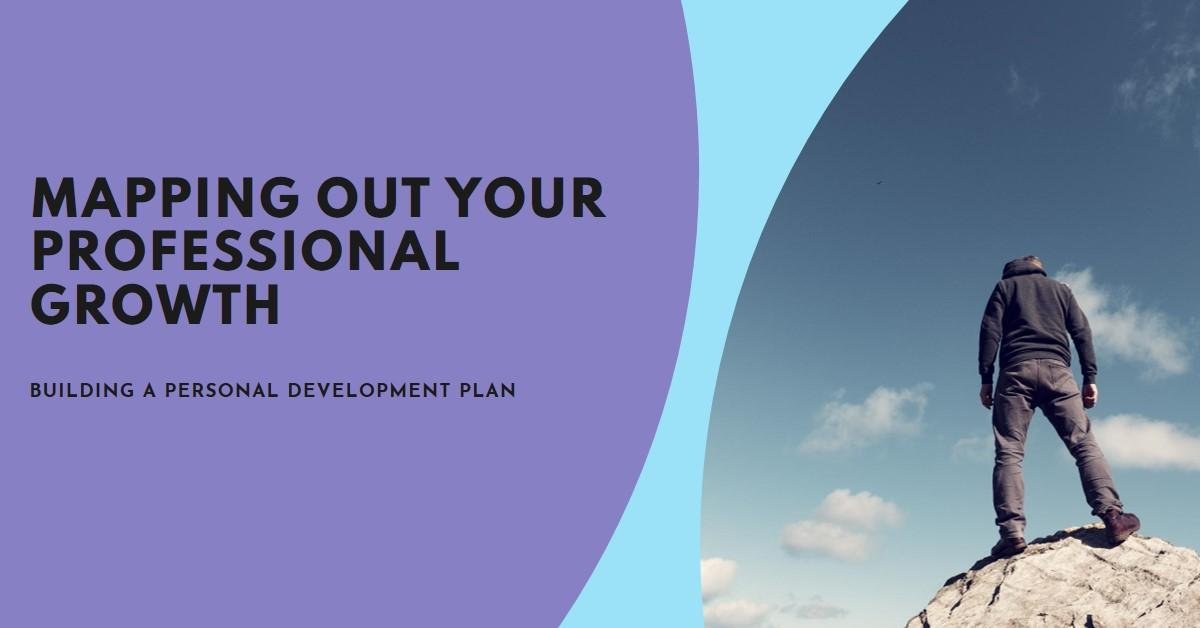Building a Personal Development Plan: Mapping Out Your Professional Growth

In today's fast-paced and competitive professional landscape, the key to success lies not just in acquiring new skills, but in a structured approach to personal growth and development. Building a Personal Development Plan (PDP) is akin to charting a roadmap for your professional journey. It's a strategic tool that empowers you to identify your strengths, weaknesses, goals, and action steps needed to reach your full potential. In this article, we'll delve into the intricacies of crafting a comprehensive Personal Development Plan that sets the stage for your career advancement.
Understanding the Importance of a Personal Development Plan
A Personal Development Plan serves as a blueprint for your career progression. It allows you to take stock of your current skill set, assess areas for improvement, and establish clear objectives to work towards. Without a structured plan in place, professional growth may seem haphazard and directionless. A PDP provides focus, clarity, and a sense of purpose to your efforts, enabling you to make informed decisions and leverage opportunities effectively.
Assessing Your Current Skill Set and Setting Goals
The first step in creating a Personal Development Plan is conducting a thorough self-assessment. Reflect on your strengths, weaknesses, interests, and values. Identify the skills and competencies relevant to your desired career path. Are there areas where you excel, or do you need to enhance certain skills to progress further? Setting SMART (Specific, Measurable, Achievable, Relevant, Time-bound) goals is essential at this stage. Whether it's mastering a new programming language, honing your leadership skills, or obtaining a professional certification, your goals should be clear, actionable, and aligned with your long-term aspirations.
Identifying Developmental Opportunities
Once you've defined your goals, it's time to explore various avenues for growth and development. This may involve formal education, on-the-job training, attending workshops and seminars, seeking mentorship, or engaging in self-directed learning through online courses and resources. Look for opportunities that not only address your skill gaps but also align with your learning style and preferences. Remember to challenge yourself and step out of your comfort zone to maximize your growth potential.
Creating an Action Plan
With your goals and developmental opportunities identified, it's crucial to create a concrete action plan outlining the steps you need to take to achieve them. Break down your goals into manageable tasks and assign timelines to each activity. Prioritize your action items based on their importance and urgency. Be adaptable and willing to revise your plan as needed to accommodate changes in your circumstances or career objectives. Regularly monitor your progress and make adjustments as you move forward.
Seeking Feedback and Evaluation
Feedback is invaluable in the personal development process. Solicit input from peers, mentors, supervisors, and trusted advisors to gain different perspectives on your performance and progress. Constructive feedback can help you identify blind spots, refine your skills, and course-correct as necessary. Embrace criticism as an opportunity for growth rather than a setback. Additionally, periodically evaluate your Personal Development Plan to assess its effectiveness and make refinements as you advance in your career.
Cultivating a Growth Mindset
Central to the success of any Personal Development Plan is cultivating a growth mindset—a belief that your abilities and intelligence can be developed through dedication and hard work. Embrace challenges, persist in the face of setbacks, and view failures as learning opportunities. Adopting a positive and proactive attitude towards your development journey will fuel your motivation and resilience, propelling you towards success.
Conclusion
In conclusion, building a Personal Development Plan is instrumental in mapping out your professional growth and realizing your career aspirations. By understanding your strengths, setting clear goals, identifying developmental opportunities, and taking actionable steps towards improvement, you can unleash your full potential and thrive in today's competitive job market. Remember, personal development is a lifelong journey, and investing in yourself is the best investment you can make for your future success.









